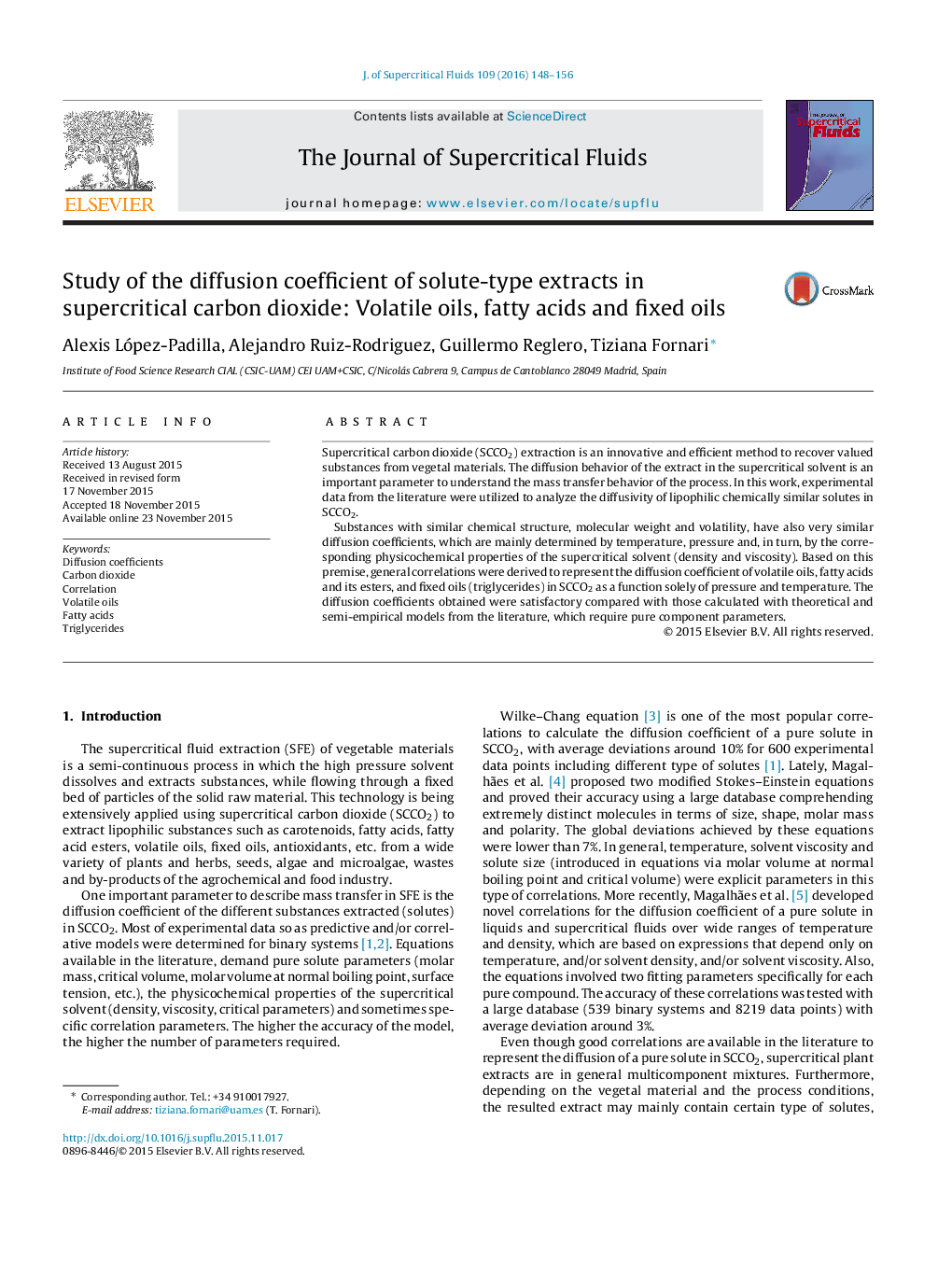| Article ID | Journal | Published Year | Pages | File Type |
|---|---|---|---|---|
| 230209 | The Journal of Supercritical Fluids | 2016 | 9 Pages |
•Diffusion behavior of solute-type substances in SCCO2 was analyzed.•Only temperature and pressure are required to correlate experimental data.•Solute-type studied were volatile oil compounds, fatty acids and triglycerides.•Thirty systems (1191 data points) were considered; mean deviation was 6%.
Supercritical carbon dioxide (SCCO2) extraction is an innovative and efficient method to recover valued substances from vegetal materials. The diffusion behavior of the extract in the supercritical solvent is an important parameter to understand the mass transfer behavior of the process. In this work, experimental data from the literature were utilized to analyze the diffusivity of lipophilic chemically similar solutes in SCCO2.Substances with similar chemical structure, molecular weight and volatility, have also very similar diffusion coefficients, which are mainly determined by temperature, pressure and, in turn, by the corresponding physicochemical properties of the supercritical solvent (density and viscosity). Based on this premise, general correlations were derived to represent the diffusion coefficient of volatile oils, fatty acids and its esters, and fixed oils (triglycerides) in SCCO2 as a function solely of pressure and temperature. The diffusion coefficients obtained were satisfactory compared with those calculated with theoretical and semi-empirical models from the literature, which require pure component parameters.
Graphical abstractFigure optionsDownload full-size imageDownload as PowerPoint slide
